Pierre Gibault: Jesuit Missionary, Revolutionary Diplomat, and Pioneer of Midwest Patriotism
Sometimes, battles can be won not with weapons, but with words. As a diplomat and missionary, Pierre Gibault was instrumental in swaying the hearts and minds of the midwest to the Patriot cause.
Pierre Gibault was born on April 7, 1737 in Montreal to French Catholic parents, and was baptised the same day. He pursued a religious education in Quebec, where he was trained as a Jesuit missionary, and was ordained as a priest in 1768. Pierre quickly became Vicar General of the Archbishop of Quebec, and assigned to the diocese of Illinois Country. He settled in Kaskaskia, but oversaw a full circuit of parishes in the area, including congregations in Vincennes, Kaskaskia, Ste Genevieve, Cahokia, Ouiatenon, Peoria, and St. Joseph. He was known to carry several pistols on him at all times for protection as he traveled through the
territory. The Jesuits were a minority sect at this time in the frontier. The order had been officially expelled from New France in 1763, and the British further attempted to dissolve the order in Canada in the early 1770s. By 1773, Pierre was one of only eleven Jesuits in the territory.
Illinois Country was comprised of what is now Illinois, Missouri, and Indiana, but in the 18th century was largely populated by French Canadians and indigenous tribes. The region was established as a part of New France, though after much of France’s North American holdings were ceded to the British following the Seven Years War, it became part of the British Province of Quebec. In 1778, Virginian militia officer George Rogers Clark received a commission to launch an expedition to take control of British posts in Illinois Country. In July, he marched on Kaskaskia, where he met with the town’s spokesmen, including Father Gibault.
Father Gibault was clear that though he supported the Patriots, his priority was with his congregation. Clark assured him that they would be allowed to continue to worship freely. Gibault was further comforted by the news of France’s alliance with the Patriots, since his congregations still largely identified with their French roots. Clark detailed his plans to capture Vincennes, but Gibault assured him that the town could be taken without force. Gibault then travelled to Vincennes, and used his respected position to advocate for the Patriot cause. He was trusted by Canadian Catholics, who may have been otherwise put off by the largely Protestant Patriots. The people of Vincennes raised the American flag at Fort Sackville, throwing the British flag into the nearby river.
Father Gibault continued to work closely with Clark and his men, preaching the Revolutionary cause throughout Illinois Country. Crucially, he also convinced his congregations to recognize American paper currency, which aided the funding of the expedition. He had also built strong relationships with the indigenous groups in the territory, and was able to appeal for their neutrality.
After the British retook Fort Sackville, Father Gibault found himself again in Vincennes. The British had also taken Francis Virgo, a Spanish trader and Patriot sympathizer, hostage. Gibault marched his congregation to the fort to demand the release of Virgo, threatening to withhold supplies from the British troops. Virgo was freed, and promptly informed Clark of the occupation at the fort, allowing the Virginians to retake the town.
Gibault’s alliance with the Americans did not make him popular with his peers in the cergy, who had largely sided with the British. He was refused a transfer to Quebec in 1788, and was later denied a land grant from the Americans following the war. He moved across the Mississippi River to Spanish controlled territory, where he continued to preach until his death in 1802.
Works Cited
“Biography – GIBAULT, PIERRE – Volume V (1801-1820) – Dictionary of Canadian Biography.” Home – Dictionary of Canadian Biography, www.biographi.ca/en/bio/gibault_pierre_5E.html.
Peyton, Pauline Lancaster. “Pierre Gibault, Priest and Patriot of the Northwest in the Eighteenth Century.” Records of the American Catholic Historical Society of Philadelphia, vol. 12, no. 4, 1901, pp. 452–498. JSTOR, www.jstor.org/stable/44207808.
Note: Opinions noted in the works cited sources do not reflect the views of Flagbearer Games.


